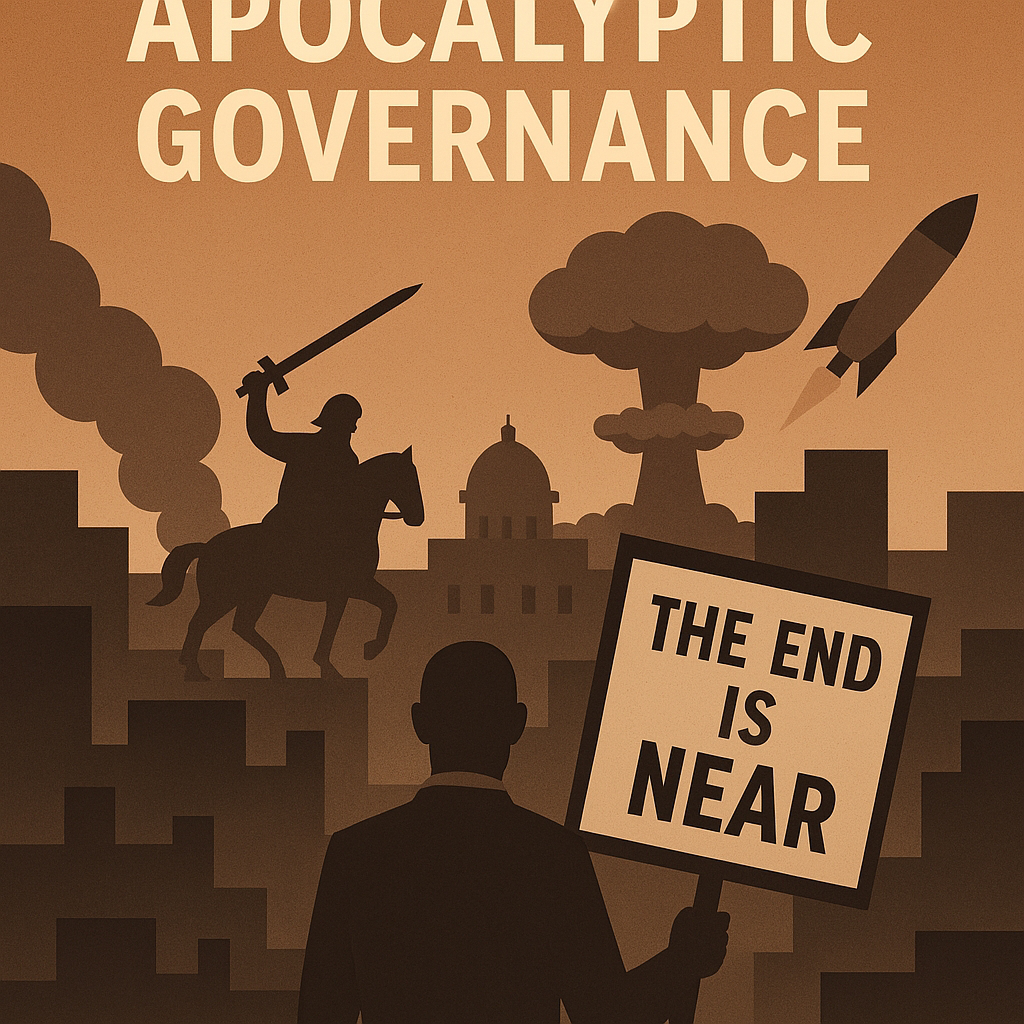2 May 2025

The idea that Netanyahu's vision of a Greater Israel is driven by ancient Jewish apocalyptic texts promising death and destruction before salvation seems a bit mad... is there any evidence? Netanyahu seems bent on creating WW3, but is there any evidence that this threat has roots in eschatological beliefs?
Ancient Roots: Apocalyptic Texts and the Vision of a Greater Israel
The concept of a "Greater Israel" has its origins in biblical promises made to the patriarchs. In Genesis 15:18, God promises Abraham land stretching "from the river of Egypt to the great river, the Euphrates", a chant we often hear these days. This expansive vision encompasses territories beyond the (undefined) borders of modern Israel, including parts of modern-day Egypt, Jordan, Lebanon, Syria, and Iraq.
While mainstream Jewish thought often views these passages as symbolic or future-oriented, certain religious Zionist groups have taken them more literally, advancing policies that align with this vision of a vastly expanded territory, giving Israel dominance over the entire West Asia.
Netanyahu's Political Alliances and Messianic Influences
Prime Minister Netanyahu's political trajectory these last thirty years has seen alliances with parties that espouse religious nationalist ideologies. Notably, his coalition includes factions like the Religious Zionist Party and Otzma Yehudit, which have roots in movements advocating for Jewish sovereignty over all biblically promised lands. So, a political environment where ancient religious visions decide contemporary policy decisions.
Moreover, Netanyahu's rhetoric is often intertwined with themes in Christian Zionist circles, emphasising Israel's role in fulfilling biblical prophecies. This alignment has bolstered support from evangelical groups, particularly in the United States, who view modern Israel as central to eschatological narratives.
A moot point - is the Israeli tail wagging the American foreign policy dog? Is the Israel lobby and this vision of a Greater Israel controlling America's foreign policy? Or is the American foreign policy establishment instrumentalising Israel to control oil and trade routes in the Middle East (as it has done with Ukraine in its not-so-proxy war with Russia)?
Eschatological Beliefs and Modern Governance
There is evidence for the integration of eschatological beliefs into modern state policy:
-
Settlement Expansion: policies promoting settlements in the West Bank are often justified by religious claims to the land of Judea and Sumeria - this is Netanyahu's name for the West Bank.
-
Legislative Initiatives: laws and discriminatory practices that prioritise Jewish religious education and values, and exclude Palestinian, reflect a governance model coming out of religious ideology.
-
Judicial Reforms: Moves to alter the judiciary, where Ashkenazi Jews, largely from Europe, hold all but one of the seats, have been interpreted by some as attempts to align state laws more closely with religious principles supported by the strongly idelogical Miserati Jews of Middle Eastern and North African origin. This pushes israel to civil war: deep state in the military and judiciary and civil service v. Miserati, who are the populists.
These policy directions shape contemporary political visions and decisions. This is evidence of an approach to governance where ancient religious narratives and eschatological expectations play the dominant role.
References
-
Inside 'Greater Israel': myths and truths behind the long-time Zionist fantasy
-
Netanyahu's “messianic vision” – be careful what you wish for
-
How Messianic Radicals Came to Control Israel – and Netanyahu
Bizarre as it may seem to modern minds, that tend to seek truth in logic and data, we have seen that ancient apocalyptic visions are being used to justify modern political strategies in Israel. We are told that Israeli interests dominate America's foreign policy establishment, but it could be that Israel is being used to further American interests in just the same way as Ukraine is being used in a war against russia
So this extremely cynical interpretation of American foreign policy has to be included in making sense of all the complexities of Middle Eastern geopolitics today.
It's an interesting topic and one of that is explored in some earlier posts:
How political ideologies, taken to extremes, can lead to planet-wide destructive outcomes. This post argues for a balanced and rational governance based on national interests and human rights.
[End]












